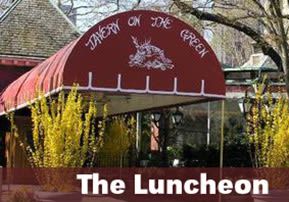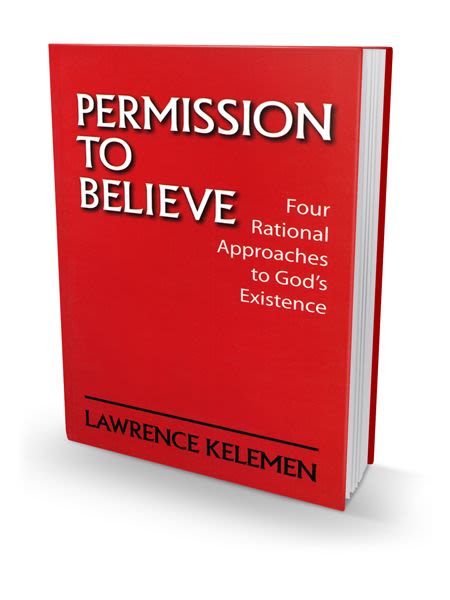
The Luncheon
You are invited to a luncheon at New York’s famous Tavern on the Green. The celebrity guest list includes: Thomas Jefferson, Sigmund Freud, and Rebbe Nachman…

You are invited to a luncheon at New York’s famous Tavern on the Green. The celebrity guest list includes: Thomas Jefferson, George Carlin, (comic), a new immigrant to Israel (oleh), Uncle Sam, Dr. Sigmund Freud, economist Victor Lebow, and Rabbi Nachman of Breslev. They are discussing a subject that everybody is interested in – the nature of happiness and how to attain it.
Jefferson: Gentleman, the founding fathers of this great nation have stated in the constitution of the United States, that “…we are endowed by our Creator with certain unalienable rights…” which include among other things “the right to pursue happiness”.
Rebbe Nachman: Excuse me sir, I’m sorry to interrupt, but our Holy Torah tells us that one who pursues happiness will never find it. Only those who appreciate what they presently have can be happy. The dream of trying to find the good life, will never work because people won’t appreciate what they have now. There will be  tragic consequences of founding your nation on such a mistaken idea.
tragic consequences of founding your nation on such a mistaken idea.
Oleh: I agree with that. I spent my whole life pursuing the American Dream, but at the time, I didn’t think it was a dream – I thought it was a promise. As long as I worked hard, I was sure that prosperity, success and honor would be mine.
George Carlin: (laughing) Hey, dude – do you know why they call it the American Dream? Because you have to be asleep to believe it! (Ha, ha, ha)
Oleh: Can somebody tell me why I believed it?
Rebbe Nachman: That’s simple. Our Sages teach us that it is the nature of man to want more than he presently has. If he has 100 he wants 200. That’s why we need the Torah to temper our appetites. We also have a tendency to overeat, over-spend and over-do a lot of things that are not healthy for us.
Economist: The Rabbi is correct. The American economic system seeks to exploit that weakness in man. The system is based on creating and fostering a desire to pursue goods and services in ever-greater amounts. Because consumption becomes a way of life, people consume in excess of their basic needs; and they measure their personal worth based on their ability to fight their way up the socioeconomic ladder.
Dr. Freud: (lighting his cigar) Of course, Dr. Lebow is correct, but don’t forget that there are major displacements going on here.
George Carlin: What do you mean, Doc?
Dr. Freud: I’ll explain. Not long ago, before the industrial revolution, religion was the opiate of the masses, but in today’s atheistic world, the masses are seeking a displaced spiritual satisfaction through consumption. The “neurotic” need to connect to a Deity is still with us, it’s just changed directions.
George Carlin: Oh c’mon, doc. That’s a lot of psycho-babble. What’s wrong with a little religion?
Rebbe Nachman: Actually Mr. Carlin, Dr. Freud is partially correct. Everybody is yearning to connect with something bigger and more powerful than him. And this is certainly healthy.
The problem with American values is that they go against the purpose of creation; they foster selfishness and haughtiness. The Foundation of all Holiness is in humility. A person with humility says, “God, I know that I don’t deserve expensive jewelry, a luxury car and designer clothing so I’m not expecting those things; I just need you – you know what I need.
A person, who doesn’t expect anything, will be happy. He understands that the world is not his so he is happy with whatever he gets. But if he’s already dug his heels in and it has to be his way or the highway, then as soon as things don’t go his way (which is sure to happen) he’ll be in trouble.
Oleh: That explains the relief our family has been feeling since we made Aliyah. We have let go of the need to buy and own so many things that we used to think that we needed. We’re so much happier without all of that junk.
Rebbe Nachman: That’s because the Gemora says marbin necosin, marbin dargas. The more things that you possess, the more worries you will have.
Uncle Sam: I’ve been listening to everything and I still don’t understand what’s so bad about owning a home and having nice things. I’m taking out my new sports car, after lunch, wanna check it out, Rabbi?
Rebbe Nachman: Dr. Freud, could you take this one?
Dr.Freud: Sure, Rebbe. A home and nice things are not the problem, Sam. The problem is that you live in an upside down society where your very identity is embedded in the type of home you own and the model of car you drive. You enjoy you sports car more because it is a status symbol than because of how it performs. The proof of this is that you need to keep replacing you cars and other luxury items at ever-increasing rates in order to feel “satisfied”.
Rebbe Nachman: Way to go, Freudy, I’m really schepping nachas from you.
Uncle Sam: OK, but what now. If I give up my American dream what will I do? How will I live?
Rebbe Nachman: I’m glad you asked that, Sam. We just learned about how the Jewish people constructed the Mishkan (temporary Temple) in the desert. Included in the instructions about how to build the Mishkan were instructions on how to take it apart. The premise of the Mishkan is that even when everything is going our way, when the trumpets sound and Hashem’s clouds appear – we’ve got to drop everything and move on.
Whatever we’re working on at the moment must be put on hold because Hashem is sending us somewhere else to rebuild there. The Mishkan reminds us that whatever possessions that we have in this world, will not last. At a moment’s notice we must be ready to let it all go and move on.
With emuna, my dear Sam, you will be prepared to let go of ‘consumption as a way of life’. At first, you may feel that things are coming apart, but it’ll just be a matter of time before Hashem will give you the sign and the instructions on how to start again. That’s the emuna of the Mishkan. With emuna we will have the courage to not give up and Hashem will give us the help we need to rebuild. If a person has within him trait of anavah (humility) he can say “Ribbono Shel Olam (Master of the Universe), my life has always been, is, and will be in Your hands alone. The world and everything in it belongs to You.
Woe to the person who expects that the world and everything in it are for his pleasure. He can plan out his whole life and dream to his heart’s content but when the trumpets sound he’ll awaken to great disappointment.
The Gemara in Tractate Tamid asks: what should a person do so that he will live [well]? And the Gemara answers that he should “hope for the best and expect the worst”.
When a person expects the worst he appreciates every moment of life as a gift from God and spends most of his time being pleasantly surprised.










Tell us what you think!
Thank you for your comment!
It will be published after approval by the Editor.